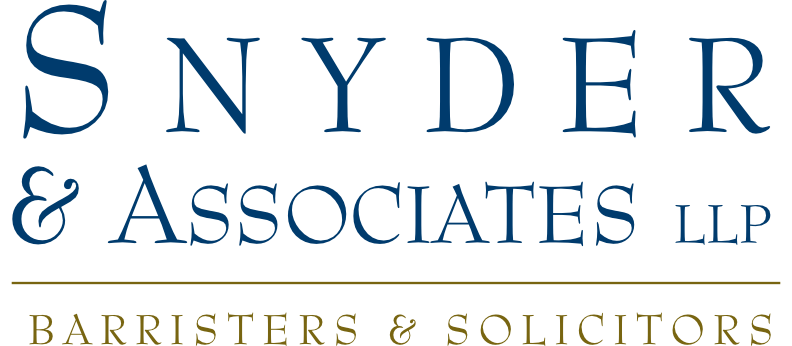Toll Free: 1.877.426.4148
Local: 780.426.4133
3500 Manulife Place
10180–101 Street NW
Edmonton AB T5J 3S4
Starting a Corporation in Alberta: Key Steps and Considerations

Mr. Matthew Davis, Associate
Starting a corporation in Alberta can be a rewarding venture, offering benefits like limited liability, tax advantages, and enhanced credibility. However, navigating the complexities of provincial laws and regulations can be challenging. Seeking legal assistance can help ensure that you meet all requirements and avoid potential pitfalls. Below we offer a brief guide to the steps involved in the process.
1. Understand the Types of Corporations
In Alberta, you can choose from various types of corporations, including:
- Private Corporations: Owned by a small group of individuals and not publicly traded.
- Public Corporations: Shares are offered to the public and traded on stock exchanges.
- Non-Profit Corporations: Established for charitable purposes and do not distribute profits to members.
Determine which structure best fits your business goals.
2. Choose a Name for Your Corporation
Selecting a unique and appropriate name is crucial. Your corporation’s name must include a legal element such as “Limited,” “Corporation,” or “Incorporated.”
To ensure your chosen name is not already in use, you’ll need to conduct a name search through the Alberta Corporate Registry. A NUANS (Newly Upgraded Automated Name Search) report is often required for this process.
A NUANS search is a comprehensive database search that checks the proposed corporate name against existing registered names across Canada. It helps to identify potential conflicts and ensure your corporation's name is distinctive. If your name is similar to an existing corporation or trademark, you may need to modify it to avoid legal issues.
Once you've confirmed your name's availability through a NUANS search, you can proceed with the incorporation process.
3. Prepare Incorporation Documents
To incorporate your business, you need to prepare and submit several key documents:
- Articles of Incorporation: This outlines the corporation's structure, including share classes, restrictions on share transfers and the number of directors.
- Bylaws: Internal rules governing the corporation's operations. (not necessary for registration)
- Consent to Act as Director: Each director must provide consent to serve on the board. (not necessary for registration)
- Notice of Directors (name of directors and their address)
- Notice of Address (Registered and Records Office Address)
- Notice of Agent for Service (name, address, email and date of appointment)
4. Register Your Corporation
File your incorporation documents with the Alberta Corporate Registry. You can do this online or in person. The registration fee varies based on the type of corporation and the services you choose. Online registration is not available to general public, it can only be done by an accredited agent at a registry or law firm. Some in-house departments also have accredited agents, as well as some accountants. The documents are submitted to the accredited agent and they do the actual registration online.
5. Obtain Necessary Licenses and Permits
Depending on your industry and location, you may need specific licenses or permits to operate legally. Check with municipal, provincial, and federal authorities to ensure compliance.
6. Set Up Corporate Records
Maintain accurate corporate records, including:
- Minutes of meetings
- Shareholder registers
- Financial statements
This documentation is essential for legal compliance and governance. This is usually maintained as a minute book, and must be stored by whoever is acting as Registered/Records Address.
7. Open a Corporate Bank Account
Separate your personal and business finances by opening a corporate bank account. This step is vital for maintaining limited liability protection and simplifying accounting.
8. Understand Tax Obligations
As a corporation, you will have different tax obligations compared to sole proprietorships or partnerships. Familiarize yourself with:
- Corporate income tax rates
- Goods and Services Tax (GST) registration
- Payroll taxes if you have employees
Consult a tax professional to ensure compliance and optimize your tax strategy.
9. Comply with Ongoing Regulatory Requirements
Corporations in Alberta have ongoing obligations, including:
- Annual returns: File with the Alberta Corporate Registry.
- Financial statements: Prepare and possibly audit them depending on your corporation’s size.
- Meeting requirements: Hold annual meetings and keep proper records.
Making Snyder & Associates LLP your corporate registered office can go a long way ensuring that your corporation is meeting its regulatory requirements. We prepare annual returns and are well prepared to handle and advise on any legal proceedings or procedures that your company may become involved in.
Conclusion
Starting a corporation in Alberta involves careful planning and adherence to legal requirements. By understanding the steps and considerations outlined above, you can establish a solid foundation for your business.
At Snyder & Associates LLP, we have the expertise in corporate law to not only guide you through the incorporation process smoothly and effectively but to also ensure you meet your ongoing corporate obligations. Contact us today to schedule a consultation and ensure your venture starts on the right path. With the right preparation and support, your corporation can thrive in Alberta's dynamic business environment.
We'll find the right lawyer for you.
We'll help you find the lawyer talent you need, so you can focus on more important things.
- International Commercial Transactions
- Business Services
- Litigation
- Family Law
- Real Estate Transactions
- Personal Injury
- Wills & Estates
- Tax Law
- Employment Law
- Bankruptcy & Insolvency
- Intellectual Property
Toll Free: 1.877.426.4148
Local: 780.426.4133
Fax: 780.424.1588
inquiries@snyder.ca
3500 Manulife Place
10180–101 Street NW
Edmonton AB T5J 3S4
Manulife Place offers underground public parking for visitors.
Snyder & Associates has been serving the Edmonton community for over four decades. Our offices are located in the Manulife building in beautiful downtown Edmonton.
All Rights Reserved | Snyder & Associates LLP Barristers & Solicitors | Webmail
